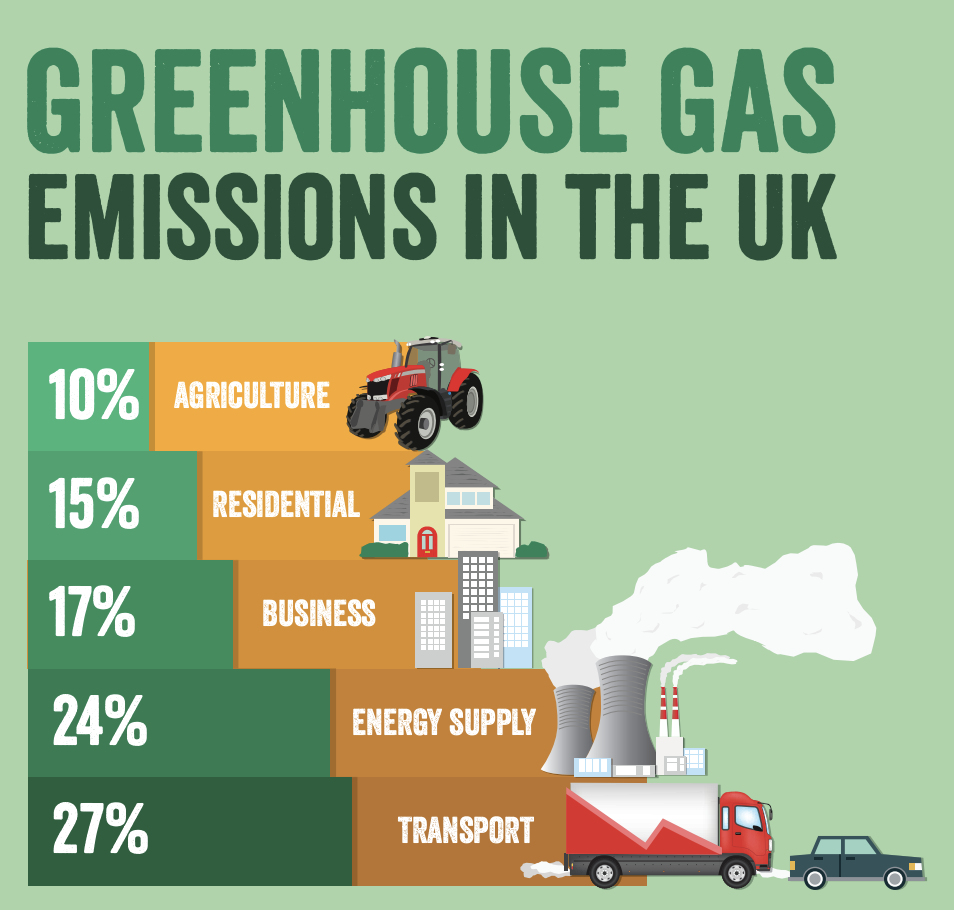Supporting farmers towards net zero with 5 key steps
8th September 2021
Defra is continuing to produce a suite of guidance centred around five key areas where farming businesses can take action to reduce their greenhouse gas emissions and move their business towards net zero.
Defra has published some of this guidance on the UK business climate hub webpage as part of the Government’s Business Climate Leaders campaign, which aims to raise awareness of the actions businesses can take to reduce their greenhouse gas emissions and move towards net zero.
The agriculture sector can help to mitigate climate change by enhancing and protecting soil health, reducing nutrient inputs and storing carbon in trees and vegetation. Making changes to farm management practices may not only help to tackle climate change – but could also benefit business productivity and profitability.
The government’s advice includes information and actions on:
- Understanding how to measure GHGs on farm – Most carbon audit tools are free and available to farmers and land managers to use. Audit tools vary and while there’s no ‘one-size-fits-all’ option it’s better to try and use a tool that complies with the PAS50 standards and works best for you and your business
- Managing organic materials – When efficiently managed and applied, organic materials can reduce farm business reliance on use of artificial fertilisers, ultimately reducing nitrous oxide emissions
- Improving nutrient use – Using fertilisers more efficiently – using less, timing use carefully and keeping records of your farm’s nutrient inputs – can significantly reduce nitrous oxide emissions
- Enhancing soil quality – Healthy, well maintained soils can also help reduce flooding, increase drought resilience, and decrease rates of nutrient run-off and eutrophication
- Managing a healthy herd – Improving animal health and introducing different management practices can lead to significant reductions in greenhouse gas emissions and better animal performance and farm productivity.
Further short guidance can be found on the UK business climate hub, which was launched in June to encourage businesses to make a commitment to become net zero ahead of the COP26 Climate Change Conference in November.
Defra will also be publishing further guidance through its future farming blog, government guidance pages and others.
The government has committed to achieving net zero in the UK by 2050 and a 78% reduction in emissions by 2035 compared with 1990 levels.
Morrisons has previously announced plans to make 100% of its British farming supply base zero carbon by 2030.
The UK supermarket said it would work with 3,000 farmers and growers over the next nine years to put in place steps to decrease and offset emissions.
Starting with meat and produce farmers, Morrisons will look into emissions produced through the entire lifecycle of farm produce, “from germination to leaving the farmgate for a Morrisons store”, to establish a design that can be shared with all its farmers.
It aims to produce eggs in a “net zero carbon way” by 2022, followed by lamb, fruit, vegetables, pork and beef.

Credit: NFU.
The NFU has set the ambitious goal of reaching net zero greenhouse gas (GHG) emissions across the whole of agriculture in England and Wales by 2040. This is its contribution to the UK’s ambition of achieving net zero by 2050.
While it’s not all on the shoulders of the agricultural world, these useful tools can help the farming industry meet ambitious targets. Agriculture accounts for 10% of the UK’s total greenhouse gas emissions, compared to other sectors including transport, which is responsible for 27%, and the UK farming sector is among the most sustainable globally.
NFU has released a competition to win a solar light by encouraging farmers to pledge for net zero.
Previous pledge winner Mr Dickinson said: “I have been working to improve the soil structure and quality, using manure and digestate to increase the soil organic matter. We made this choice to reduce the amount of artificial nitrogen we use to reduce our carbon footprint.
“Since the release of the new farming rules for water we are having to rethink our approach to how we continue this vital work. It has highlighted more than ever that the policy and legislation for farming must support the actions of farmers to reach their net zero ambitions if we are going to make farming part of the solution to climate change.”
Farmers Guide reported in July 2021 on a newly launched guide to help farmers tackle climate change, read the article here for more advice.

